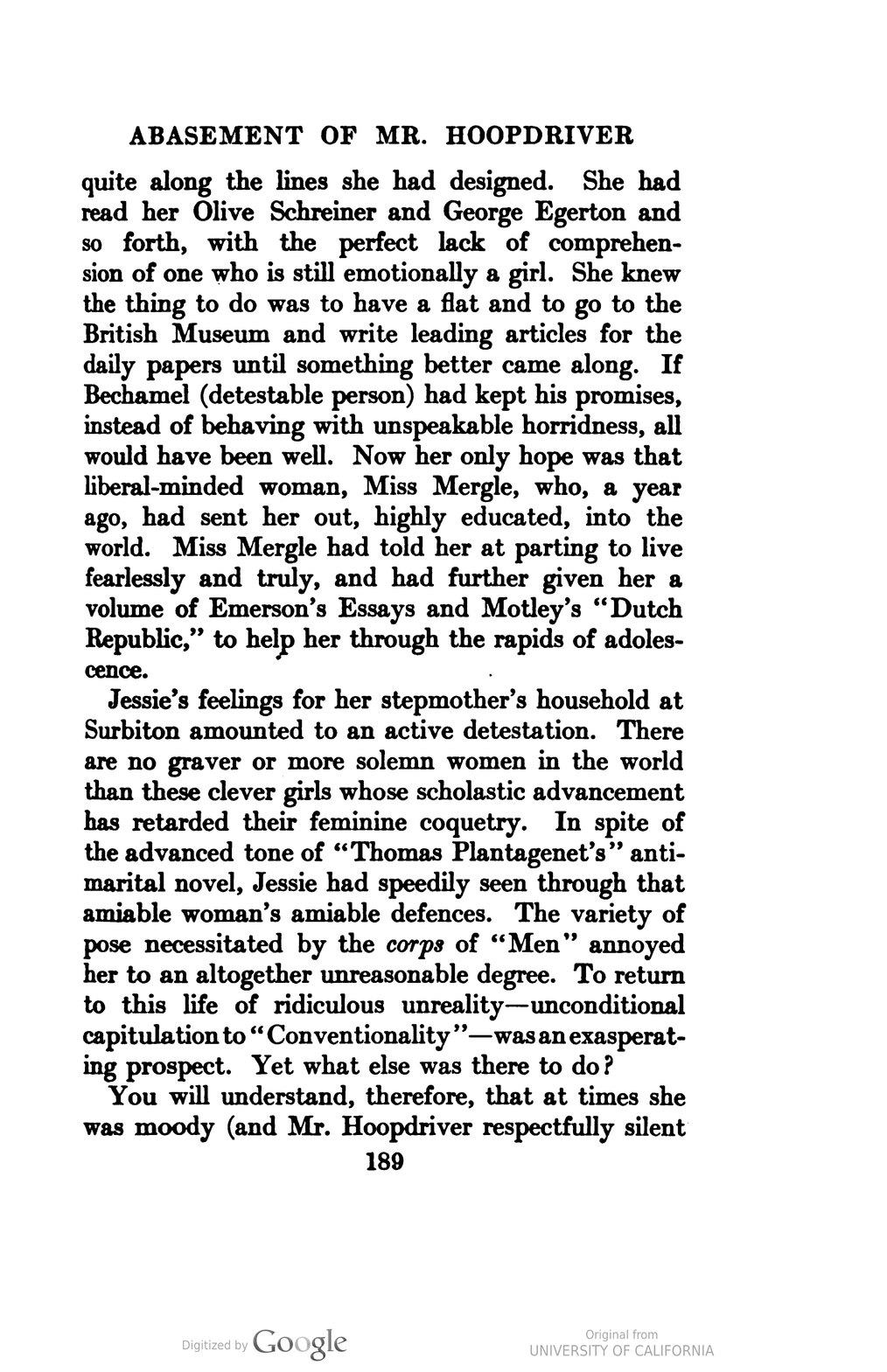ABASEMENT OF MR. HOOPDRIVER
quite along the lines she had designed. She had read her Olive Schreiner and George Egerton and so forth, with the perfect lack of comprehension of one who is still emotionally a girl. She knew the thing to do was to have a flat and to go to the British Museum and write leading articles for the daily papers until something better came along. If Bechamel (detestable person) had kept his promises, instead of behaving with unspeakable horridness, all would have been well. Now her only hope was that liberal-minded woman, Miss Mergle, who, a year ago, had sent her out, highly educated, into the world. Miss Mergle had told her at parting to live fearlessly and truly, and had further given her a volume of Emerson's Essays and Motley's "Dutch Republic," to help her through the rapids of adolescence.
Jessie's feelings for her stepmother's household at Surbiton amounted to an active detestation. There are no graver or more solemn women in the world than these clever girls whose scholastic advancement has retarded their feminine coquetry. In spite of the advanced tone of "Thomas Plantagenet's" anti-marital novel, Jessie had speedily seen through that amiable woman's amiable defences. The variety of pose necessitated by the corps of "Men" annoyed her to an altogether unreasonable degree. To return to this life of ridiculous unreality—unconditional capitulation to "Conventionality"—was an exasperating prospect. Yet what else was there to do?
You will understand, therefore, that at times she was moody (and Mr. Hoopdriver respectfully silent
189
